The WWF is run at a local level by the following offices...
- WWF Global
- Adria
- Argentina
- Armenia
- AsiaPacific
- Australia
- Austria
- Azerbaijan
- Belgium
- Bhutan
- Bolivia
- Borneo
- Brazil
- Bulgaria
- Cambodia
- Cameroon
- Canada
- Caucasus
- Central African Republic
- Central America
- Chile
- China
- Colombia
- Croatia
- Democratic Republic of the Congo
- Denmark
- Ecuador
- European Policy Office
- Finland
Restoring the local food system to improve climate resilience and community livelihood in Northern Thailand.
The challenge
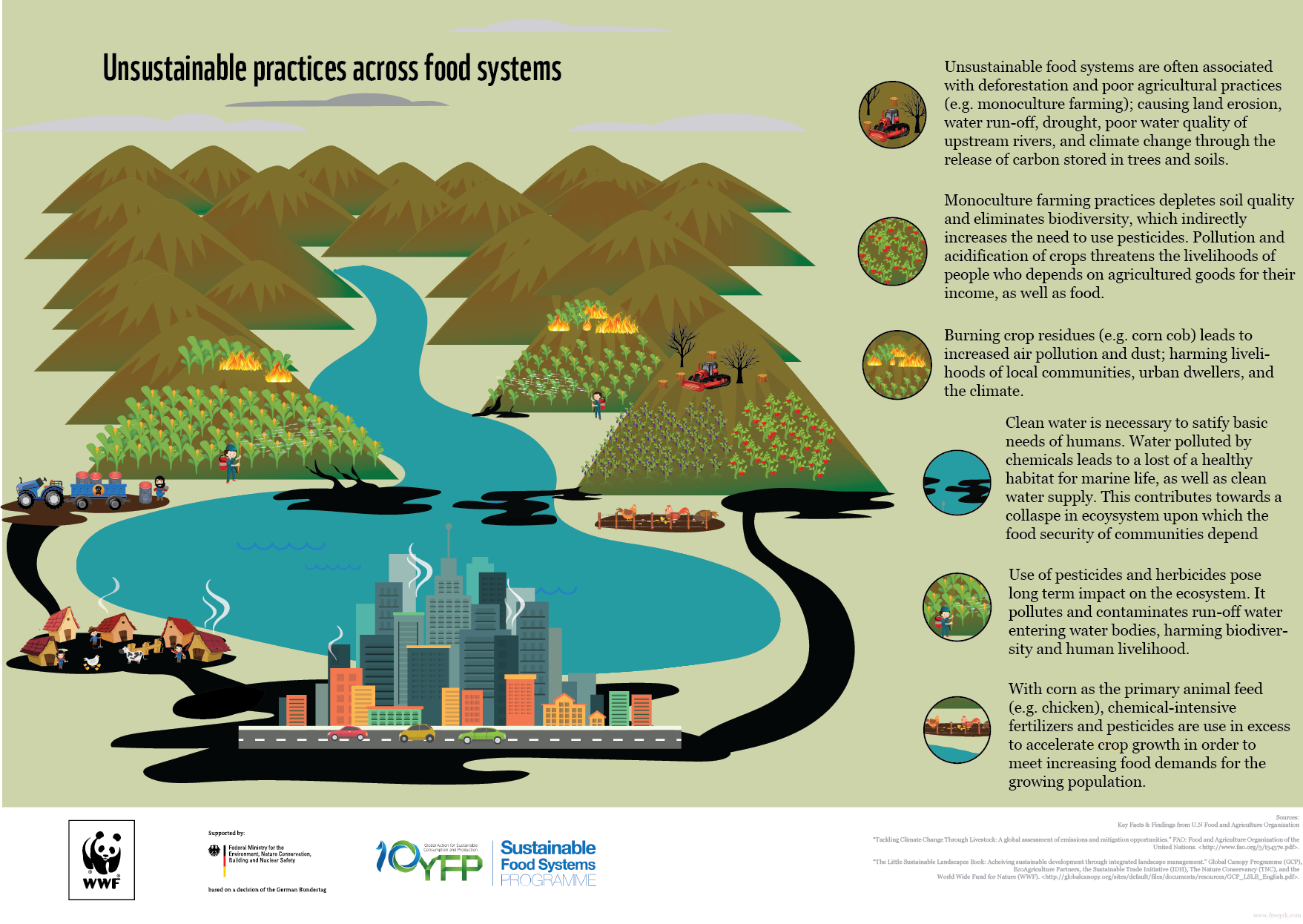
Unsustainable agricultural: The demand for commercial crops and meats has been a major driver of deforestation. For example, maize, which is used for animal feed, has replaced around 40% of its healthy forest in Chiangmai and is associated with land degradation, erosion, landslides, and pollution problems.
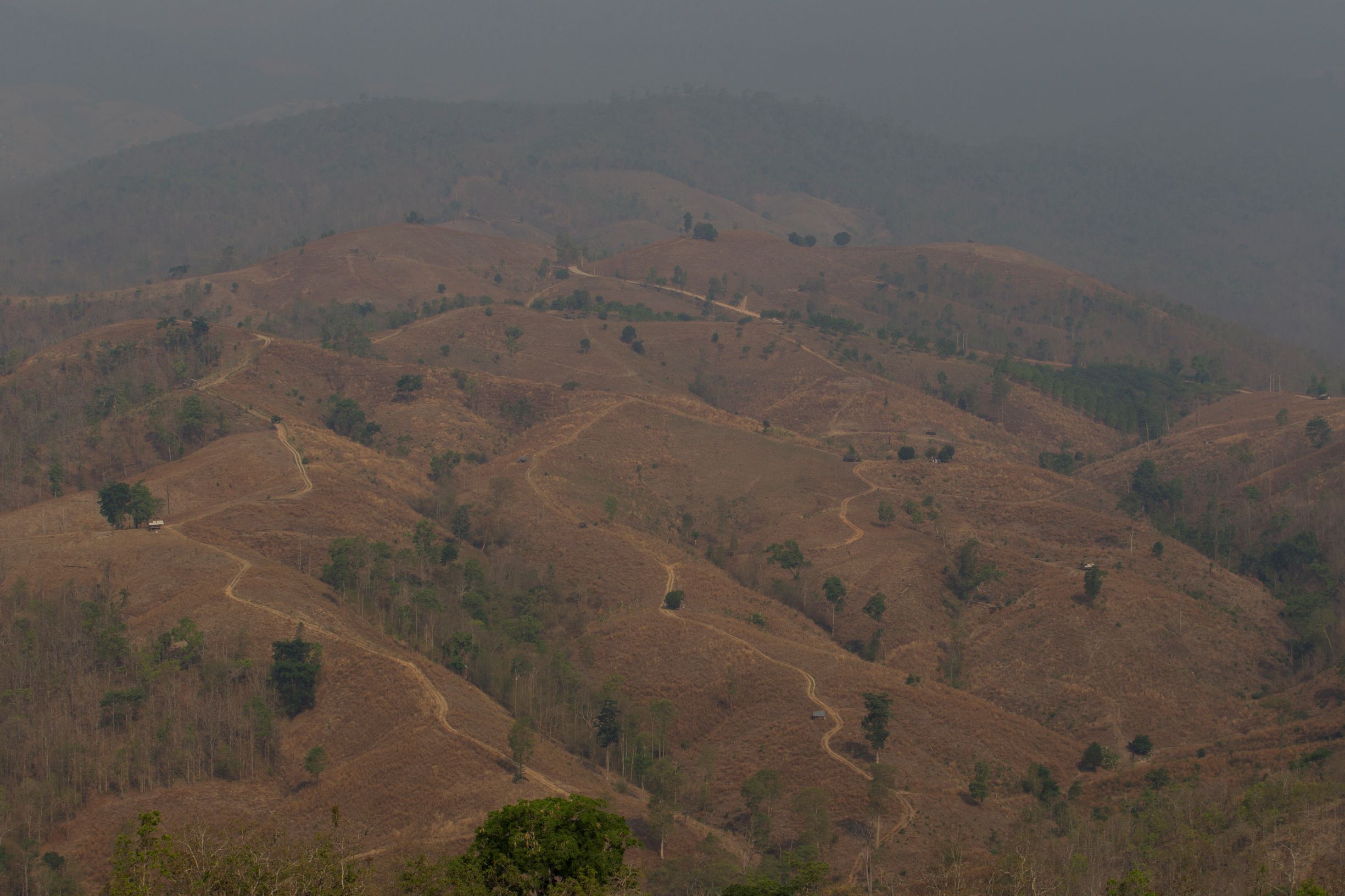
Climate change: Climate impacts threaten food security and while there are limited adaptation and mitigation practices in place it is becoming more vulnerable. Over the past decade, climate change induced droughts have been exacerbated by unsustainable agricultural practices. There has been less rainfall, impacts on food production, and water scarcity becomes more evident.
Ecosystem degradation: Intensive agrochemical practices have caused soil degradation, droughts, decline of pollinators, and reduced agricultural productivity.
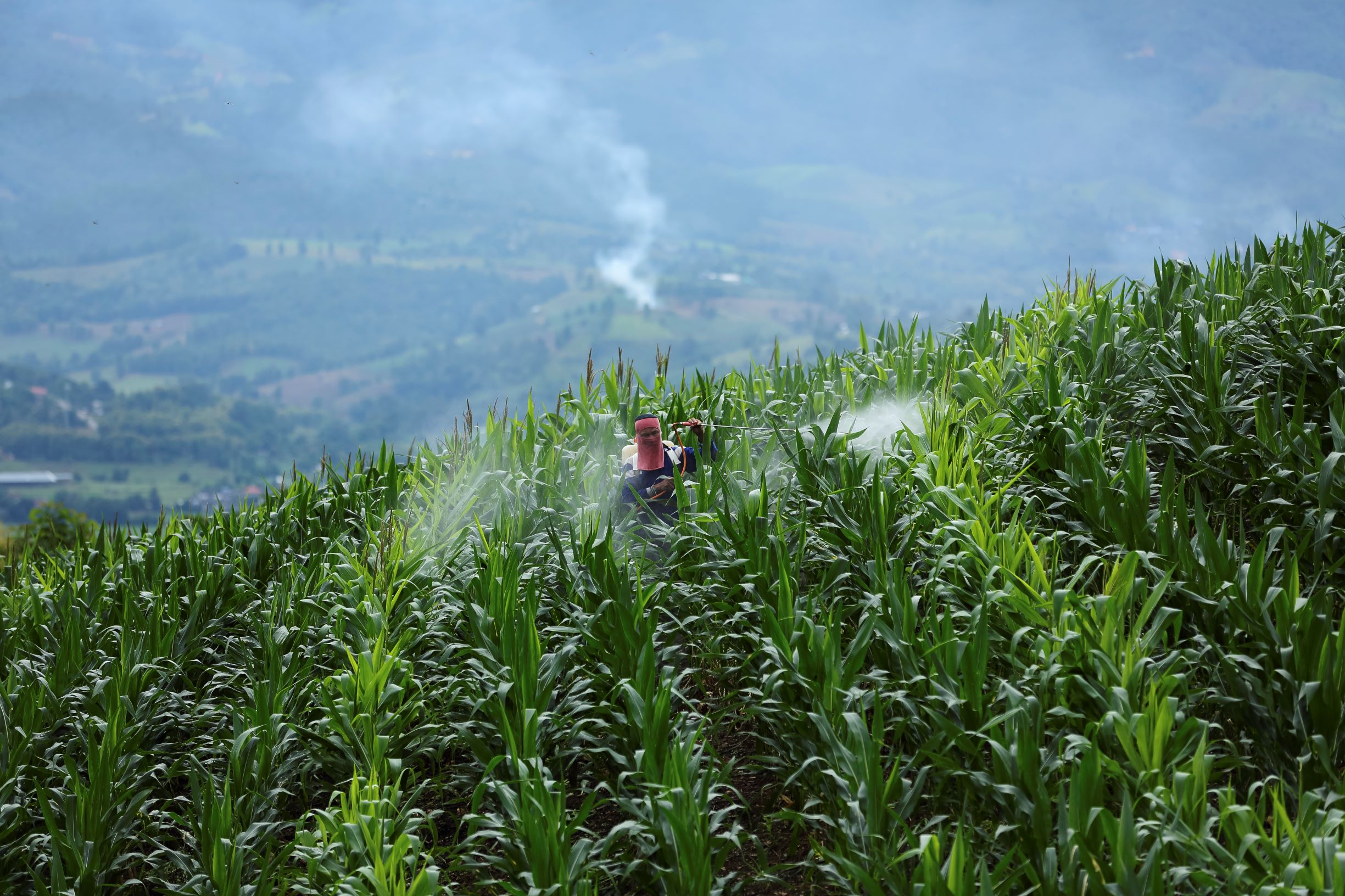
Failing local food: The food system is being transformed from traditional subsistence and sustainable farming towards monoculture agrochemical practices. The local wisdom on sustainable agriculture has been diminished due to the direction of economic development. Local food ingredients are now rare, especially in urban areas.
Ecosystem service trade-offs: The natural capital of healthy forest landscape and its ecosystem services are being traded off for maize production. High-value natural capital is inefficiently used for food production and is exploited by large agribusiness. Forest areas are traded-off at the price of 300 USD/hectare/year, an average farmer’s earning from a hectare of monoculture plantation, without any externalities being taken into consideration.
Externalities: Haze pollution occurs every year due to slash and burn practices in the upstream mountain areas. Forest fires are more catastrophic each year as they are exacerbated by climate change.
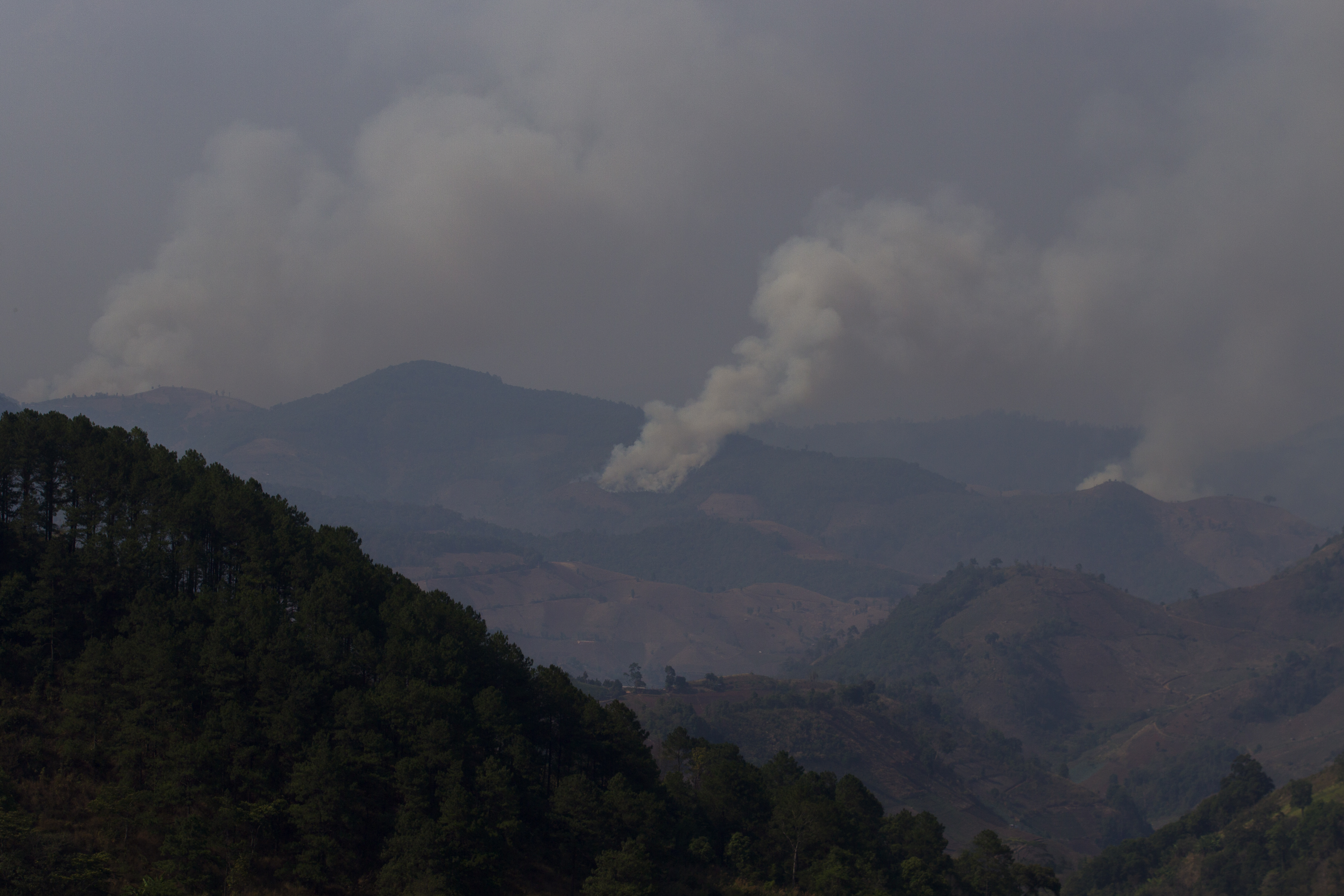
Vicious cycle: Deforestation leads to the disintegration of forest landscape connectivity and biodiversity loss. Small-farmers’ income relies on monoculture crops, which has a fluctuating selling price. These factors exemplify the crumbling of the local economy and failing of the local food production system. People lose their ability to be self-reliant as a result.
Agribusiness control: Production relies heavily on agricultural inputs owned by agribusiness leaving only small margins for farmers. Large agribusiness determines the market price, inputs, products, and even influences government policies. There is growing inequality within the food chain of the capital markets.
Lack of policy measures: Current unclear policies on land tenure have created uncertainties for smallholders’ rights on land access. As the land could be taken back by the government anytime, land insecurity led to monoculture plantations and encroachment instead of the planting of perennial crops. Legal and economic measures for promoting sustainable agriculture do not exist. Technology can play an important role but is still limited due to a lack of financial and institutional support.
Our vision
This is how we envision the food vision to be in the north of Thailand in 2050, it is revolutionary. Chiangmai holds great transformative potential to help us achieve our food vision based on the concepts of a sustainable local food system, agroecology, and liveable cities with a healthy ecosystem. This vision explicitly links the health of both citizens and the environment, will improve people's relationship with the ecosystem, and will have a positive impact on climate change. As a reaction to the transformation, agroecology farming, organization farming, urban farming, local food, slow food, fair trade, and alike are implemented. They address the current food system issues, in particular failing of the local food system, disconnect between smallholder farmers and consumers, inefficient use of natural resources, agrochemicals contaminated food, as well as deforestation and degradation of the ecosystem.

Ecosystem rehabilitation and sustainable agriculture: The key revolutionary action is to shift away from agrochemicals intensive monoculture practices, which diminishes soil fertility and health of the ecosystem. The economic trade-off between the natural the capital of a healthy landscape against primary food production will be mitigated through an agroecology approach that values the ecological, economic, and social potential, while also involving all actors within the decentralized local food system and social movements. Agroecology is used as an alternative to mainstream intensive monoculture agriculture. It promotes agricultural production systems which value biological diversity and the services rendered by natural processes. Food production through agroecology with diversified local varieties and perennial crops will help restore degraded lands and forests, biodiversity and pollinators, as well as restore the carbon back in the soil. This will not only mitigate climate change, but also improve ecosystem services. Throughout the landscape, from urban centres to rural communities, agricultural land and forests, eco-tourism and local food will be new economies for communities. Urban spaces and backyards are also used to grow vegetable gardens and fruit trees. The whole landscape from urban to rural is friendly for all living species. The ecosystem service will be fully functional. Improved ecosystems and biodiversity in both agricultural and forest ecosystems will maintain traditional wisdom on sustainable harvesting, nature-based ingredients for food, and natural medicines.
Transitions towards local food system: Increasingly, communities will organize “food hubs” around cooperatives, communities enterprises to anchor their local food systems. The collaborative network that integrates sustainable food production, processing, distribution, consumption, and waste management is established. This local food system will play a critical role in building community wealth. Integration of sustainable practices will be implemented throughout the value chain before the food before reaches the hands of consumers. This starts from the utilization of natural resources and inputs, production process, processing process, distribution and logistics, marketing and consumption. Growing, processing, and distributing food locally creates and sustains community-based jobs. Direct marketing channels between farmers and consumers (e.g., through farmers' markets) boost local farmers’ incomes. In contrast to large, industrial farms, small family farms are more likely to spend their money in the community on farm-related inputs and engage in farming practices that do not harm their community’s physical environment. Farmers' markets and food cooperatives will ensure money remains and circulates within localities and create more vibrant communities. Younger generations, who left home for cities, will return back home as jobs in local communities are created for food production and eco-tourism. In addition, this will encourage urban citizens to turn vacant tracts into productive, income-generating spaces and often include job training or employment opportunities for low-income youth and other urban residents in Chiangmai city.
Responsible consumption and production: The producers at the local level, are closely connected with consumers. As sustainable food becomes widely available, both in rural and urban communities, consumers have greater choices in terms of quality and quantity. Food literacy and concepts of responsible consumption will be taught at school, at home and embedded in the local culture. Each citizen will know the value of food, and its connections to the environmental system, and therefore become responsible in food production and consumption. Each citizen will know how to produce sustainable food, or at least how food is produced and consumed at the local level, therefore they will be self-sufficient and food independent. Consumers concerned about sustainably sourced food will drive the expansion of the market. The retail sector will grow interested in sustainable sourcing and integrated social, ethical, and environmental performance factors into the process of selecting suppliers. The ecological footprints of our all food consuming lifestyles will be minimized through this sustainable food culture, as well as the transformation of food production system towards agroecology and local food system.
Climate mitigation and adaptation: Climate change impacts are expected to be more intense over the next decades. The agriculture land in the region is vulnerable, especially to droughts that will have the greatest impacts on food production and security. Chiangmai’s food production sector will be prepared for climate impacts. Inherently, the agroecology approach is measured for climate mitigation and adaptation. The plantations of mixed local food varieties and perennial crops do not require much water in the long term. Such plantations with organic methods will improve the soil conditions and erosion, and potentially retaining of moisture in soil, drought resistance, as well as water storage and purification. Based on the WWF research, the net greenhouse gas (GHG) emission of monoculture plantation per hectare, such as maize, in Chiangmai area is 3,743 kg CO2 eq.Ha-1yr-1, whereas with the proposed vision with the transformation model through agroecology will generate at least total carbon stock per hectare of 209,294 kg CO2 eq.Ha-1 within 10 years, and will improve productivity and food variety. Together with food security, this vision will contribute to the national GHG mitigation strategy in agriculture, as well as forest restoration attempts.
Policy supports for sustainable food system: Set of policy measures will be deployed to accelerate the transformation towards a sustainable food system. These measures will internalize the externalities of unsustainable food production and consumption patterns. Sustainable production, by means of agroecology will be incentivised. Suspension on debt repayment and provision of green credit to smallholder farmers, cooperatives and social enterprises at concessional rates will be provided together with financial incentives during the transformation, as well as price subsidies for the products. Agrochemicals, in particular herbicides and pesticides, taxes will be imposed to discourage and internalized their externalities into the production cost. The use of these agrochemicals will be banned in high biodiversity and ecology value areas such as in upstream forests, and high density residential areas. The sustainably produced food price will be competitive to conventional types of unsustainably mass produced fo. Safe food will be widely available and accessible to all.
Food independence and sovereignty: An estimated 180,000 smallholder farmers, covering most of the agricultural landscape in Chiangmai, are key catalyst actors for this vision through their shift in agricultural practice, and their roles in strengthening of the local food chain that make stronger market links and productivity improvements. More vibrant smallholder agriculture, with enhanced participation of women and youth, will hold the key to reducing poverty and hunger. Farmers will have a restored local food system and will have more sovereignty on access to food. Farmers will be expected to have fewer expenses on food as they become self-sufficient, and will have a stable income by growing food crops, fruit trees, and high value commodity in a sustainable way. Food produced and supplied directly from smallholders or communities based enterprises will make all citizens food-independent, by means of reducing margins paid to large agribusiness who controlled the food system, middlemen, facilitating improvements in quality and yield, and sometimes deliver premium prices for a certified fair trade or sustainably produced products. Smallholders in Chiangmai will respond positively to opportunities that enable them to join local food supply chains and will contribute to food security, poverty reduction, and economic growth.
Well-being and technology: Residents in Chiangmai and visitors will experience health, happiness, and prosperity through this improved local food system. This wellness will stem from healthy food and a healthy environment. The innovative technology for a sustainable food system will be readily available for all, connecting and addressing the needs of all stakeholders across the value food chain. An integrated advanced application platform, using blockchain technology, advanced remote sensing, micro-climate weather forecasting technology and machine learning will help farmers in agriculture activities, green finance for banks, a donation platform for consumer participation in the restoration of degraded land, traceability and certifications. Ultimately, this vision will improve the local economy and improve the community’s well-being in the future.
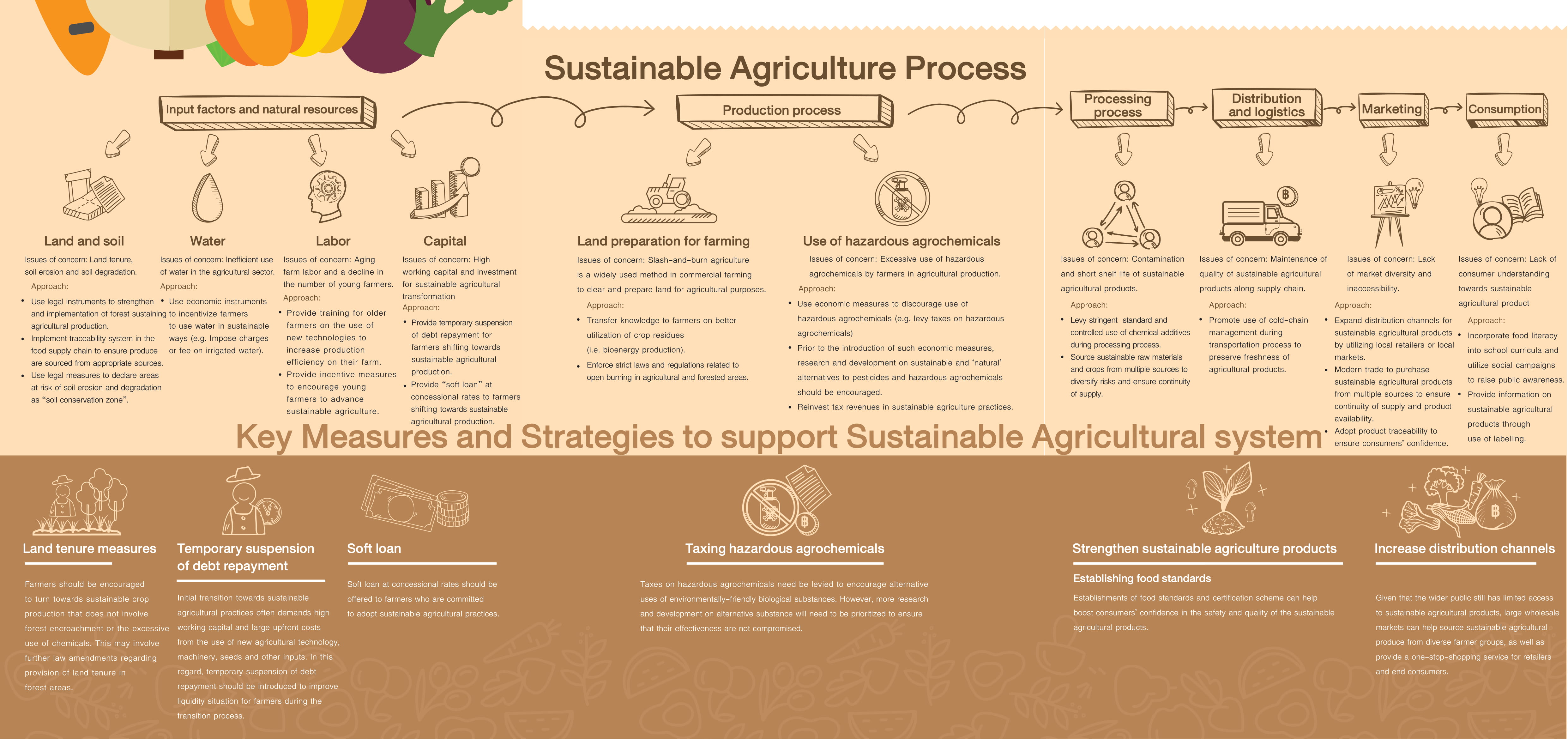
FLR349